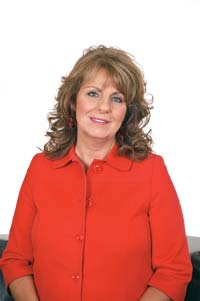This month I celebrate my Alive Day — the day I faced death and won the battle. It is a day of great meaning for me because without my Alive Day and my brain injury, I might never have had the joy of working with so many veterans and their families.
When I founded my nonprofit, I was told civilians could not break the barrier that existed with veterans due to “military culture” and they would not open up and trust that a civilian could help them. The people who said these things to me were wrong!
There is a culture with veterans that is based on their experiences in the military. This part of what the naysayers said was true. They have terms and acronyms and ways of doing things that might not be familiar to those who have not served in the military. But our veterans are the bankers we trust, the police officers who provide safety, the politicians we elect, the soccer coaches we share time with on Saturday afternoons. They are the doctors who heal, the actors who entertain and the singers who take us on lyrical journeys.
Our veterans are also the homeless on benches, the struggling at food banks, the broken; they’re searching not so much for “why” but “how” they can find their way back home again. They have physically returned home, but some never reach that feeling of comfort or feeling “at home” where their guard can be let down and they feel safe and accepted.
There is much written about veterans helping veterans, but very little about how civilians can and do make a difference in the lives of veterans. Saying “thank you” is great, but words alone won’t help conquer the civilian/veteran divide. We must take the time to get to know each other. By finding common ground we can begin to build trusting relationships that can lead to positive changes in veterans’ lives and allow civilians to gain by knowing their fellow veteran citizens. Our community benefits when veterans are welcomed, understood and integrated with its civilians.
How can we begin to understand our nation’s veterans? Spend time with them. Learn about them through their stories. Listen to them first with your heart, then with your ears. I call this “Inspirational Listening.” The past four years have brought many thousands of military members, veterans and families into my life through The Arms Forces. I was once one of those citizens who loved her country, cried at patriotic songs, but I never thought I could personally make a difference in the life of a veteran. When I began using a simple phrase “Tell me your story,” the walls between our cultures began to come down. When a veteran shared their story, judgment had no place in our conversation. I learned from veterans how to talk with veterans.
I learned it isn’t necessary to know their military language. I learned it was okay to ask most questions, but to never ask questions about killing or death. I learned that we had more in common than we had differences. The greatest lesson I learned is that an ordinary citizen could make a difference as one human being reaching out to another with love and gratitude.
Veterans account for around 7 percent of the U.S. population. Seems like simple math that 93 percent of civilians should find a way to ensure that veterans have the health care that is needed in every community; that they be given the opportunity to be employed and take care of their families and be welcomed not just at parades and events, but welcomed into the heart of citizens in the communities where they reside. It makes sense that our veterans know they are accepted for having different experiences while acknowledging that they still have the same dreams and ambitions of civilian citizens.
Veterans don’t want our sympathy. They want services that match needs. They want civilians to know that not all veterans make negative headlines in the news. Those with the invisible wounds of traumatic brain injury or post-traumatic stress want their injuries recognized and understood. Veterans want to know they made a difference and are appreciated. Isn’t that something we all want? O
Pam Hays is president and founder of The Arms Forces, www.thearms forces.org; (419) 891-2111; Facebook.com/thearmsforces.























